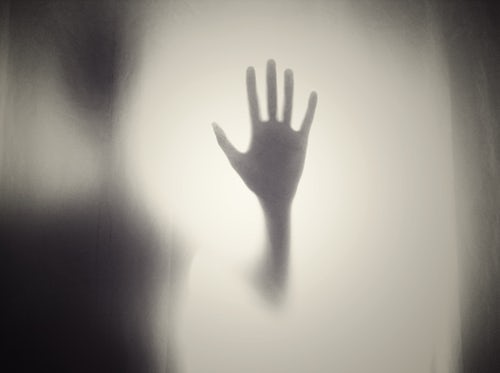Nonfiction by Brian Oliu
And I cannot blame him for it—to acknowledge our past is to recognize that we were someone else once; we are creatures that lose pounds of skin throughout our lives, so who is to say how it is we regenerate.
You lost more skin than most—every knee rubbed raw, each forehead split from the force of aluminum.
I have a fear of always. As a child, I read about bottomless pits and believed that one false step would send me into a spiral of nothing—that I would fall forever, that I would die of old age, perpetually in a state of plummet. This too is how I feared death—imagining myself as bone underneath the earth: how I could see nothing and hear only silence.
Later, I learned that there is a difference between being buried alive and being dead. I learned of the off-chance of heaven, and I fell in love with the odds of it all; there is a promise of movement.
Here is a list of the ways in which I wanted to mark my body: sunrise, ship’s wheel, race map. My wife, a star and a state on her left leg. Friends boast a Saturn V rocket, a sprig of arugula, seashells, roman numerals, swirls to look like paint that has yet to dry, names we don’t dare speak out loud so we let our bodies put them forth in the world for us.
And you, the bull; staring forward as if to invite any and all comers like an open folding chair, or a palm outstretched to the lightwork. This is what it must mean to be synonymous; to be forever attached to something even though the life you lead is not the life you lead, but you and I know that some things are eternal—that the smell of vinegar always brings me back to the kitchen counter that my mother just cleaned, where I shove sugar into my mouth as I draw the horns on your skin in the margins—of how skin, too, is paper, of how we pulp ourselves into something flatter, how we ring ourselves, how we dry out in the open air.
The bull, now, is dead: a skull in its place, its eye hollowed out—the depth of shadow an illusion, as if the body can somehow cave in on itself. The trick of the eye is something you know about, how we watch the hand raised instead of the hand looking to strike—how the camera never stays in one place despite how it zooms in on a face always in half-surprise. The bone is cracked, as if the value of something is found long after it is dead; that a change in perspective is something that stays uncovered like a pot of water boiled over. There is no denying its beauty; that we find piece in dried flowers, a boar with an apple in its mouth, the breath taken when something is over—we compartmentalize, no things without eulogy—the ice sculpture, the this is your life, the shape we take.
This body has not earned the chance to be beautiful—it is not something that needs to be remembered beyond the fact that I too can raise one eyebrow and look at an imaginary hard camera as if to tell the truth. I too was also told to die, but I couldn’t change my name and clothes—I had to leave a world and never come back; I had to exist as a what ever happened, as if I was ever thought of at all.
Instead, give me a chance to be covered: in honey, in pie crust, in a clear tarp so you can see through to where I should be and have always been. Your name is forever your name despite how well you are at escaping from helicopters, how the blades start to slow and bend as the world below falls in on itself. That’s me, down there, on my front porch, watching the bones of the earth spit toward the surface as if they are being reborn—forgive me in my panic if I believe them to be alive; it is simply the sight of what was left bouncing on the dirt; you can believe anything to be real if you look in the right places. That’s me, wondering what the difference is between being swallowed and being buried—I know that you don’t mean to, the same way I never meant to draw those lines so crooked to the point where the eyes were askew. They’re just contours; edges cragged like split streets. Your body knew this before I ever will—there are stories of cattle sensing the wave before I ever lose my footing; of how they run toward the center; of lost pet flyers stapled to telephone poles days before they topple—that they will survive without me and think nothing of it—a new name before the old one scabbed over. That’s me, waving upwards, falling until the cows come home.
Brian Oliu is originally from New Jersey and currently lives and teaches in Tuscaloosa, Alabama. He is the author of two chapbooks and four full-length collections, most recently the lyric-memoir i/o (Civil Coping Mechanisms), and Enter Your Initials For Record Keeping (Cobalt Press), a collection of essays on NBA Jam. Recent essays on topics ranging from long distance running to professional wrestling appear in The Collagist, Catapult, The Rumpus, Runner’s World, and elsewhere.
